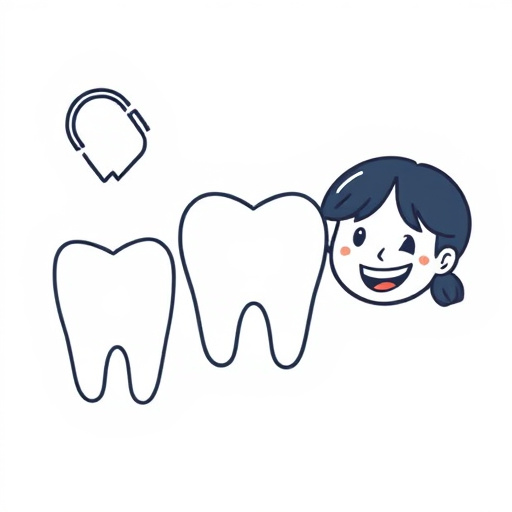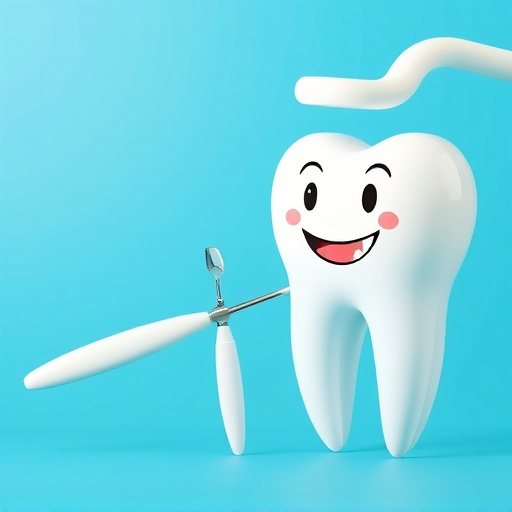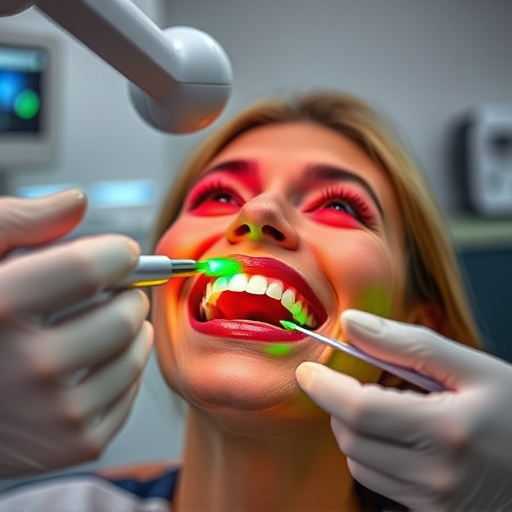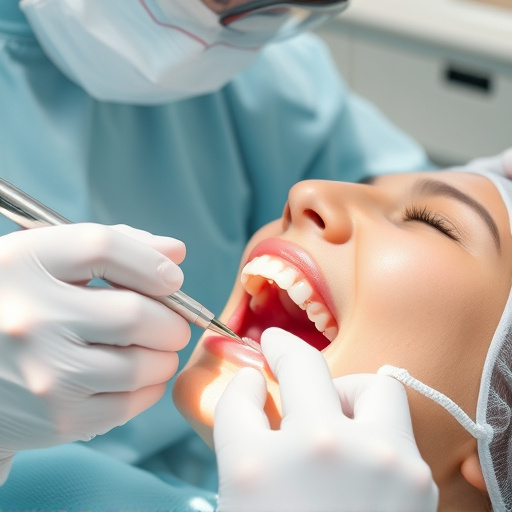Periodontal disease starts as gum inflammation and bacterial plaque buildup, progressing to periodontitis if untreated. This can cause tooth looseness and link to systemic issues like cardiovascular diseases, diabetes, and respiratory problems. Periodontal therapy treatment combats these problems through deep cleaning, scaling, and root planing, targeting gum tissue and bone structure. Combined with regular check-ups, dental crowns, and wisdom tooth removal, it maintains oral health, prevents tooth mobility, and restores confidence in one's smile.
Periodontal disease, often overlooked, can lead to severe oral complications. This condition affects not just the gums but also the bone structures supporting teeth, potentially causing tooth mobility and even loss. Understanding the impact of periodontal disease is crucial. Periodontal therapy treatment offers a comprehensive solution by targeting the root cause. Through advanced techniques, it reinforces dental stability, preventing tooth mobility and promoting overall oral health. Discover how this therapeutic approach can transform your smile and safeguard your dental well-being.
- Understanding Periodontal Disease and Its Impact on Teeth
- The Role of Periodontal Therapy in Reinforcing Dental Stability
- Long-Term Benefits: How Periodontal Treatment Prevents Tooth Mobility
Understanding Periodontal Disease and Its Impact on Teeth

Periodontal disease, often referred to as gum disease, is a silent yet significant threat to oral health. It begins with inflammation and infection in the gums, caused by the buildup of plaque and bacteria along the gumline. If left untreated, this condition can progress to periodontitis, where it attacks the structures that support teeth, including the bone and periodontal ligaments. As a result, teeth may become loose and even mobile, which is a concerning issue for any patient.
The impact of periodontal disease extends beyond just the gums. It’s linked to various systemic health issues such as cardiovascular diseases, diabetes, and respiratory problems. Moreover, it can also lead to a decrease in overall oral health, affecting one’s ability to chew, speak, and even smile confidently. Periodontal therapy treatment is designed to address these issues through deep cleaning, scaling, and root planing, aiming to prevent further damage and promote healthy gums and teeth, which is crucial for maintaining overall well-being, especially when combined with general dentistry practices and preventive dentistry techniques like regular dental check-ups and the application of dental crowns where necessary.
The Role of Periodontal Therapy in Reinforcing Dental Stability

Periodontal therapy treatment plays a pivotal role in reinforcing dental stability by addressing the root causes of tooth mobility. Beyond simply cleaning teeth, this specialized approach targets the gum tissue and bone structure that support teeth. Through non-invasive procedures like scaling and root planing, periodontal therapy removes plaque and tartar buildup, reduces inflammation, and stimulates regrowth of healthy gum tissue. As a result, the strong foundation needed to sustain teeth is restored, preventing gradual weakening that can lead to tooth mobility or even loss.
Consider the impact of neglecting dental health: persistent oral infections can erode bone, creating spaces between teeth and leading to painful conditions like periodontitis. Fortunately, comprehensive dental care, including periodontal therapy, acts as a powerful preventive measure against such emergencies dental care scenarios. By promoting optimal gum health, it helps maintain the natural alignment of teeth, ensuring not only esthetic appeal but also long-term functionality and comfort.
Long-Term Benefits: How Periodontal Treatment Prevents Tooth Mobility

Periodontal therapy treatment offers long-term benefits that extend far beyond just improving gum health. One of its key roles is to prevent tooth mobility, a condition where teeth become loose and can eventually fall out. This is achieved through a comprehensive approach that addresses the underlying causes of periodontal disease. By removing plaque and tartar buildup, scaling and root planing procedures help reduce inflammation and restore oral structures like gum tissue and bone that support teeth securely in their sockets.
Regular dental check-ups and cleanings, often facilitated by family dentistry professionals, play a crucial role in maintaining these results. Additional procedures like wisdom tooth removal can also be recommended to prevent overcrowding, which exacerbates periodontal issues. Moreover, when necessary, dental crowns can be used to restore and strengthen teeth affected by advanced periodontal disease, enhancing their stability and longevity. These collective efforts ensure that periodontal therapy treatment not only halts tooth mobility but also promotes long-term oral health and functionality.
Periodontal therapy treatment is a game-changer when it comes to maintaining dental health. By addressing the root cause of periodontitis, this specialized care not only improves gum health but also plays a pivotal role in preventing tooth mobility. Through non-invasive procedures and tailored treatments, periodontal therapy strengthens the jawbone and supports the teeth, ensuring long-term stability and a vibrant oral ecosystem.














